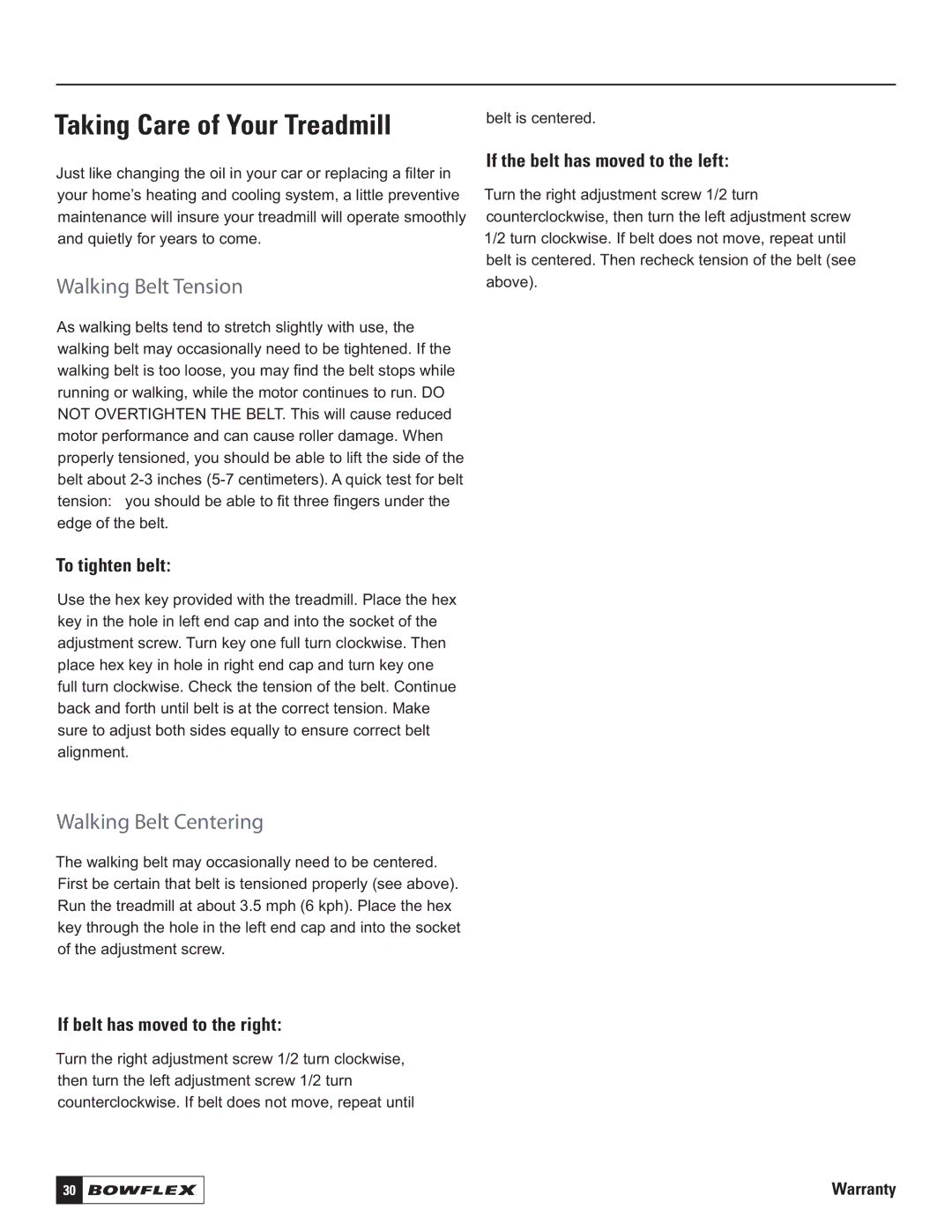
Taking Care of Your Treadmill
Just like changing the oil in your car or replacing a fi lter in your home’s heating and cooling system, a little preventive maintenance will insure your treadmill will operate smoothly and quietly for years to come.
Walking Belt Tension
As walking belts tend to stretch slightly with use, the walking belt may occasionally need to be tightened. If the walking belt is too loose, you may fi nd the belt stops while running or walking, while the motor continues to run. DO NOT OVERTIGHTEN THE BELT. This will cause reduced motor performance and can cause roller damage. When properly tensioned, you should be able to lift the side of the belt about
To tighten belt:
Use the hex key provided with the treadmill. Place the hex key in the hole in left end cap and into the socket of the adjustment screw. Turn key one full turn clockwise. Then place hex key in hole in right end cap and turn key one full turn clockwise. Check the tension of the belt. Continue back and forth until belt is at the correct tension. Make sure to adjust both sides equally to ensure correct belt alignment.
belt is centered.
If the belt has moved to the left:
Turn the right adjustment screw 1/2 turn counterclockwise, then turn the left adjustment screw 1/2 turn clockwise. If belt does not move, repeat until belt is centered. Then recheck tension of the belt (see above).
Walking Belt Centering
The walking belt may occasionally need to be centered. First be certain that belt is tensioned properly (see above). Run the treadmill at about 3.5 mph (6 kph). Place the hex key through the hole in the left end cap and into the socket of the adjustment screw.
If belt has moved to the right:
Turn the right adjustment screw 1/2 turn clockwise, then turn the left adjustment screw 1/2 turn counterclockwise. If belt does not move, repeat until
30 |
| Warranty |
|
|
|
